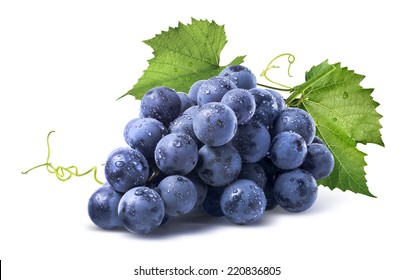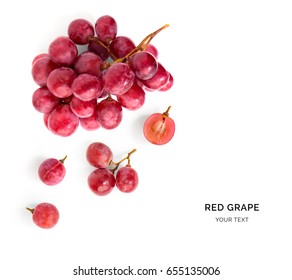Top 14 health Benefits of Grapes
Grapes have been cultivated for thousands of years and have been revered by several ancient civilizations for their use in winemaking.
There are many types of grapes including green, red, black, yellow and pink. They grow in clusters and come in seeded and seedless varieties.
Grapes are grown in temperate climates across the world, including Southern Europe, Africa, Australia and North and South America. The majority of grapes grown in the US are from California.
Grapes offer a wealth of health benefits due to their high nutrient and antioxidant contents.




Resveratrol, one of the compounds found in this fruit, has been well-studied in terms of cancer prevention and treatment.It has been shown to protect against cancer by reducing inflammation, acting as an antioxidant and blocking the growth and spread of cancer cells within the body.
Grape extracts have been shown to block the growth and spread of human colon cancer cells in test-tube studies.

6 Great for Eyes.
Attention grape-lovers. Those little red, white and green berries not only pack a nutritional punch, they're good for your eyesight too, says recent research. Study leaders at the University of Miami, Bascom Palmer Eye Institute, found that eating grapes can protect your retina from deterioration.The plant chemicals found in grapes may protect against common eye diseases.
In one study, mice fed a diet supplemented with grapes showed fewer signs of damage to the retina and had better retinal function compared with mice who were not fed the fruit
In a test-tube study, resveratrol was found to protect retinal cells in the human eye from ultraviolet A light. This may lower the risk of developing age-related macular degeneration (AMD), a common eye disease.

7 Lower Risk of Diabetes.
Grapes: Resveratrol, a phytochemical found in grapes, modulates the blood glucose response by effecting how the body secretes and uses insulin. Hence grapes are a good choice keeping its nutritional profile in mind. Apples: Diabetics should feel free to eat apples.
It is specifically linked to improving blood sugar regulation by affecting carbohydrate metabolism. That said, grape-flavored products can contain lots of added sugar, which has the reverse effect!

8 Contains Anti-inflammatory properties.
Grapes contain anthocyanins, which reduce inflammation. In addition, they may decrease the risk of several diseases, including heart disease, diabetes, obesity, Alzheimer's, and eye disorders.
It has been found that grapes contain certain enzymes which bring about anti-inflammatory effect in our body. As such it brings about relief to the arteries, promotes heart health and helps in other repair functions of the body.

9 Good for Bones Health.
Grapes contain many nutrients important for bone health, including calcium, magnesium, phosphorus and vitamin K. Studies in rats have shown that grapes may have protective effects on bones, but human studies are needed to confirm these benefits.

10 Good for Memory and Mood.
In studies, this reduction increased verbal memory performance and motor function. A 2009 study found that Concord grape juice taken for 12 weeks increased verbal learning in adults who had a declining memory but didn't have dementia.
Grapes contain something called resveratrol, Angelone said, an antioxidant proven to boost mood.

11 Good for Knees.
A recent study has established that daily intake of grapes can help getting relief from knee pain, especially the ones triggered due to symptomatic osteoarthritis. Grapes are high on antioxidants, most important and beneficial one being polyphenols which help in improving the flexibility and mobility of joints.
A study done by Texas Woman's University has established that daily intake of grapes can help get relief from knee pain, especially the ones triggered due to symptomatic osteoarthritis. Grapes are high on antioxidants, most important and beneficial one being polyphenols, which help in improving the flexibility and mobility of joints.

12 Easy to Add in Diet.
Grapes are easy to incorporate into a healthy diet. Here are a few ways you can enjoy them:
- Eat grapes plain as a snack.
- Freeze grapes for a cool treat.
- Add chopped grapes to a vegetable or chicken salad.
- Use grapes in a fruit salad.
- Add grapes or grape juice to a smoothie.
- Add grapes to a cheese board for an appetizer or dessert.
- Drink 100% grape juice.

Grapes are high in several important nutrients.
One cup (151 grams) of red or green grapes contains the following nutrients:-
- Calories: 104
- Carbs: 27.3 grams
- Protein: 1.1 grams
- Fat: 0.2 grams
- Fiber: 1.4 grams
- Vitamin C: 27% of the Reference Daily Intake (RDI)
- Vitamin K: 28% of the RDI
- Thiamine: 7% of the RDI
- Riboflavin: 6% of the RDI
- Vitamin B6: 6% of the RDI
- Manganese: 5% of the RDI
- Potassium: 8% of the RDI
- Copper: 10% of the RDI

Comments
Post a Comment
If you have any doubts,Please let me Know